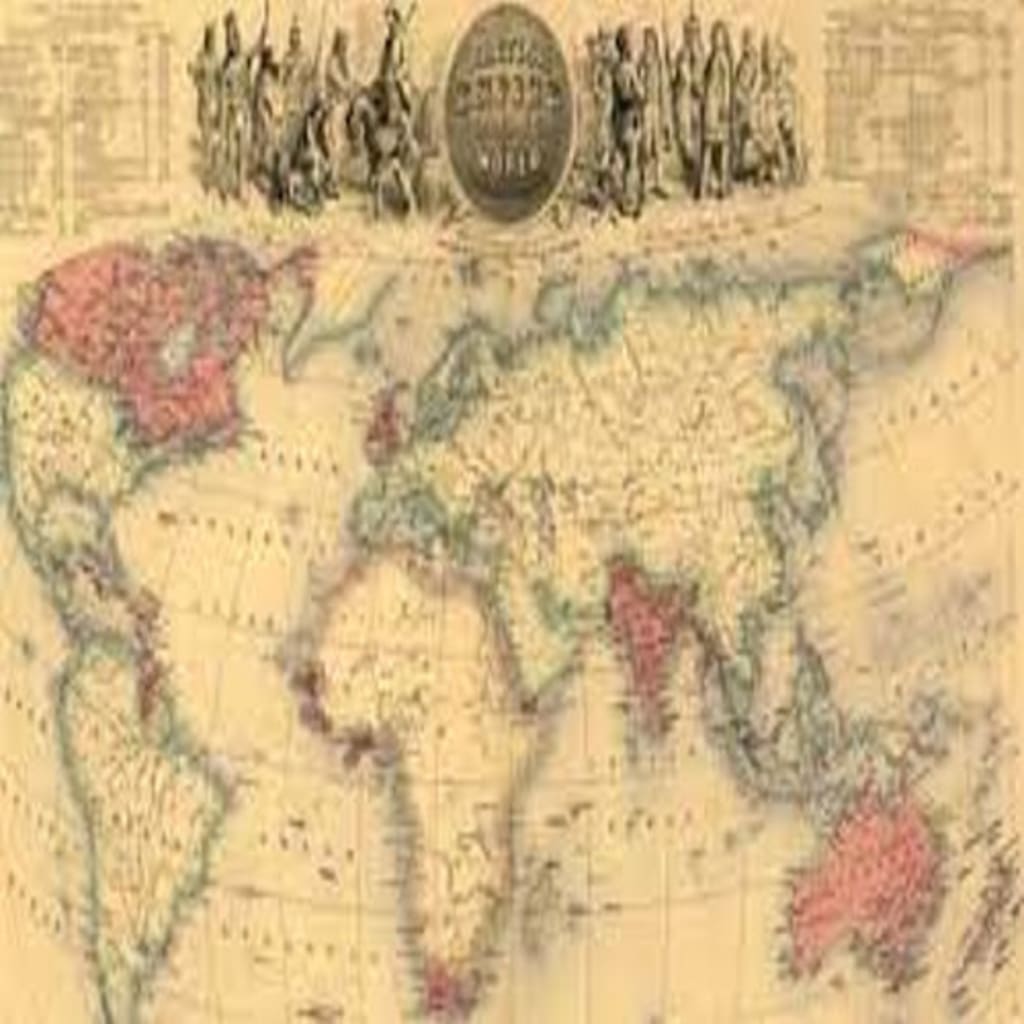How England Managed To Invade 90% Of The World
Britain's rise to global dominance

The British Empire's expansive reach across the globe during its heyday is a testament to its unparalleled ability to exert influence on a global scale. Stretching from the 16th to the early 20th centuries, the British Empire managed to invade, plunder, and profit from nearly every corner of the world, with only 22 countries escaping its grasp. The story of how this small island nation off the coast of Europe achieved such power is a fascinating one.
Britain's journey to global dominance didn't start with an advantage; in fact, other European powers like Portugal, Spain, Holland, and France had a head start in exploration. However, Britain's rise can be attributed to a combination of strategic decisions and investments in its Navy and trade fleets.
One significant aspect of the British Empire's expansion was its reliance on private enterprises and businesses. While the British government played a role in invasion forces, many expeditions were carried out by private armies and mercenaries hired by entrepreneurs. These businesses set up ventures abroad, and the Crown provided protection and oversight when necessary. Sometimes, these private companies even acquired land in areas where Britain had no initial interest, further expanding the Empire's reach.
The British Navy played a pivotal role in their global expansion. It was the largest and most powerful navy in the world, thanks to substantial investments in naval technology and shipbuilding. The country's advantageous location, natural ports, and abundant resources like coal, iron, and oak for shipbuilding further fueled its naval dominance.
Britain's success on the seas was also due to favorable geographical factors, like prevailing westerly winds that allowed their ships to sit "upwind" of the rest of Europe, a significant advantage in the age of sail. As Britain's Navy grew, it became a cornerstone of national defense, guarding against potential threats from neighboring countries like France.
However, it was not just naval might that drove British expansion. The British government recognized the importance of controlling the oceans to expand its influence. They invested heavily in building the world's best fleet, surpassing other European countries through their willingness to spend vast sums on their Navy.
A robust Navy provided multiple advantages, such as safeguarding trade routes, protecting merchant ships, and securing valuable colonies. These colonies, set up by private ventures, were crucial in gathering resources and providing a constant stream of vessels, ensuring the British Empire's growth.
The British Empire's expansion was driven by economic motives, as well. British businesses sought lucrative opportunities in far-flung regions, including India, East Asia, and the Americas. The British government encouraged citizens to finance their own expeditions, offering protection through the Royal Navy. This allowed private ventures to exploit resources and generate wealth worldwide, contributing to the Empire's growth.
However, the darker side of British expansion was the involvement in the transatlantic slave trade. The British Empire profited immensely from this trade, using enslaved people as a cheap labor force in colonies, especially in North America and the Caribbean. This exploitative practice not only enriched British businesses but also helped secure territories that would later expand the Empire further.
India played a significant role in the British Empire's expansion in the East. The British East India Company paved the way for colonization in the region, capitalizing on the wealth of resources and cheap labor available. The British government's support and protection ensured the company's success, leading to the colonization of India and surrounding areas.
Another key factor in the British Empire's expansion was its embrace of private corporations. British companies, like The London Company and East India Company, were independently owned but received backing from the government in terms of protection on the seas and military support when needed. This allowed these companies to spread British culture and influence, making them integral to the Empire's growth.
Despite its massive reach, the British Empire intentionally left certain countries untouched. These included landlocked nations and some parts of Europe. Invading these areas would have been costly and impractical, potentially triggering conflicts with other European powers. Thus, strategic decisions played a role in determining which countries escaped British invasion.
In conclusion, the British Empire's ability to invade 90% of the world's countries can be attributed to a combination of factors. A dominant Navy, private enterprises, economic motives, and the exploitation of resources and people were key drivers of its expansion. Britain's unique approach to supporting private ventures, combined with governmental backing, set the stage for its unprecedented global influence. While there were dark aspects to this expansion, such as the slave trade, there is no denying the magnitude of the British Empire's impact on world history. It serves as a compelling example of how a small island nation could become a global superpower through strategic decisions, economic prowess, and naval dominance.
About the Creator
Enjoyed the story? Support the Creator.
Subscribe for free to receive all their stories in your feed. You could also pledge your support or give them a one-off tip, letting them know you appreciate their work.





Comments
There are no comments for this story
Be the first to respond and start the conversation.